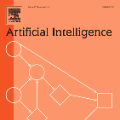
Educational technologies, and the systems of schooling in which they are deployed, enact particular ideologies about what is important to know and how learners should learn. As artificial intelligence technologies -- in education and beyond -- may contribute to inequitable outcomes for marginalized communities, various approaches have been developed to evaluate and mitigate the harmful impacts of AI. However, we argue in this paper that the dominant paradigm of evaluating fairness on the basis of performance disparities in AI models is inadequate for confronting the systemic inequities that educational AI systems (re)produce. We draw on a lens of structural injustice informed by critical theory and Black feminist scholarship to critically interrogate several widely-studied and widely-adopted categories of educational AI and explore how they are bound up in and reproduce historical legacies of structural injustice and inequity, regardless of the parity of their models' performance. We close with alternative visions for a more equitable future for educational AI.
翻译:教育技术及其应用的教学系统,对知识的重要性和学习者应当如何学习的问题产生了特殊的意识形态。由于人工智能技术 -- -- 教育领域和范围以外 -- -- 可能有助于边缘化社区产生不公平的结果,已经制定了各种方法来评估和减轻AI的有害影响。然而,我们在本文件中争辩说,基于AI模型绩效差异评价公平性的主要模式不足以应对教育AI系统(重新)产生的系统性不公平现象。我们从批判性理论和黑人女权主义奖学金中吸取结构性不公正的视角,批判性地询问几类广泛研究和广泛接受的教育AI,并探索这些技术如何与结构性不公正和不平等的历史遗留物联系在一起并复制,而不论其模式业绩的均等性。我们接近于为教育AI创造更公平的未来的替代愿景。



